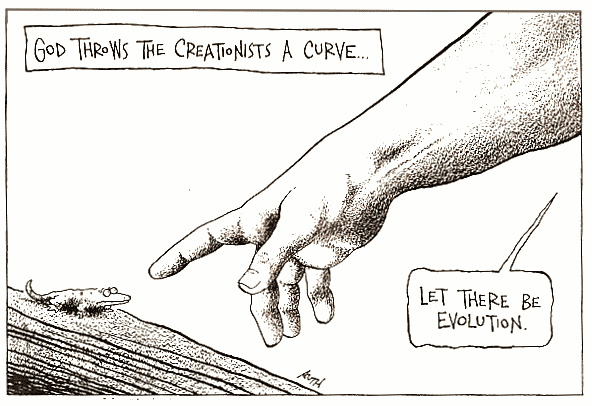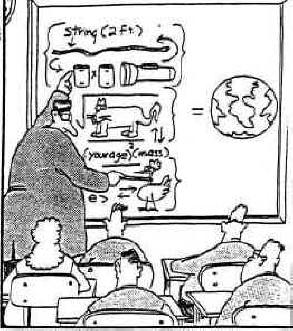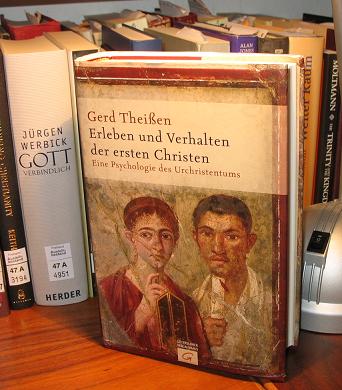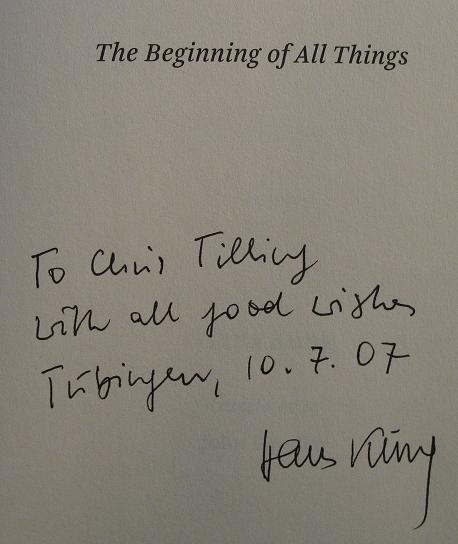Gregory MacDonald responds to my previous post
Gregory MacDonald (author of The Evangelical Universalist) asked if I could post this simply as a comment on my posting rather make it a post of its own, but I thought it would be worthwhile to put this helpful response on the main blog page to discuss.
I'd be most interested to hear what people think of his response.
"Thank you for your intelligent and helpful response to my work and that of other Christian Universalists. Let me make the following comments by way of initial response:
You make the point very well that Paul makes a distinction between the judgment of believers in this age and the condemnation of nonbelievers at the end of the age. You'll get no argument from me on that front. You also note that the redemptive judgment texts appealed to in Paul fall into the category of texts about the judgment of believers in this age. That is correct. Indeed there is very little in your exegesis that I would wish to question. One thing I would pick up on is the distinction between those who have hope (believers) and those who have no hope (non believers). That distinction is Pauline but we must not forget that Gentile believers were also once "without hope" (Eph 2:12). That nonbelievers have no hope does not mean that salvation cannot be their ultimate destiny.
So, if I agree with you on almost everything you say, what of my claim that Paul was a universalist? Well, I don't think that my book ever claims that Paul was a universalist … at least, a universalist in the way that I am (though I freely confess to being somewhat ambiguous on the matter). Did Paul think of hell as corrective? He never comes out and says so. The argument in my book is slightly different. I am trying to do contemporary Christian theology grounded (in part) in Pauline theology and this requires me to extend some of Paul own teaching in ways that I think are fully consistent with it. So I think that Paul did envisage a universal salvation (and he was a robust universalist of sorts) and I think that he also envisaged a condemnation of unbelievers. He never tried to explain how those two ideas can be held together so I suggest a way of doing it (a way I find more helpful than alternative suggestions). Now I am well aware that when I do so I am not seeking to explain the way that the historical Paul did it. As I say, he was not writing systematic theology for our convenience and so he simply does not tell us how to do it. He may not even have thought it through himself – who knows? So perhaps you and I actually agree and may be in danger of speaking past each other. When I speak of hell as corrective I am not seeking to say what Paul said but what I think that I must say in the light of what Paul said. Now I argue that one can draw biblical support for this notion of hell as corrective from the wider biblical teachings on divine punishment (and I argue that God's punishment of Israel and the church is not utterly different from his punishment of unbelievers. The distinction between punishment of believers now and unbelievers in hell is one of degree but in kind they are not totally different). Thus I do draw a little (and only a little) on Pauline texts that speak of the correction of believers. This is not because I think that one can infer directly from such texts that hell is like that. Rather I think that such texts can play a role in a more general understanding of divine punishment and feed indirectly into a theology of hell. So I am transcending Paul's intent. Am I subverting it? I would be if Paul's teaching on final punishment ruled out any future deliverance. My point is that the only text that seems to do so 2 Thess 1:8-9 and I don't think that it needs to be read that way. However, if I am wrong in thinking that we can do justice to the breath of Paul's teachings in this area (i.e., that the distinction between the judgment of believers and unbelievers is more radical than I maintain) and that my suggestion entails a denial of some of Paul's teachings then I am wrong and another way needs to be found to hold the texts together. Hope that is of some help but I suspect that I have not really replied adequately.
Gregory MacDonald"














